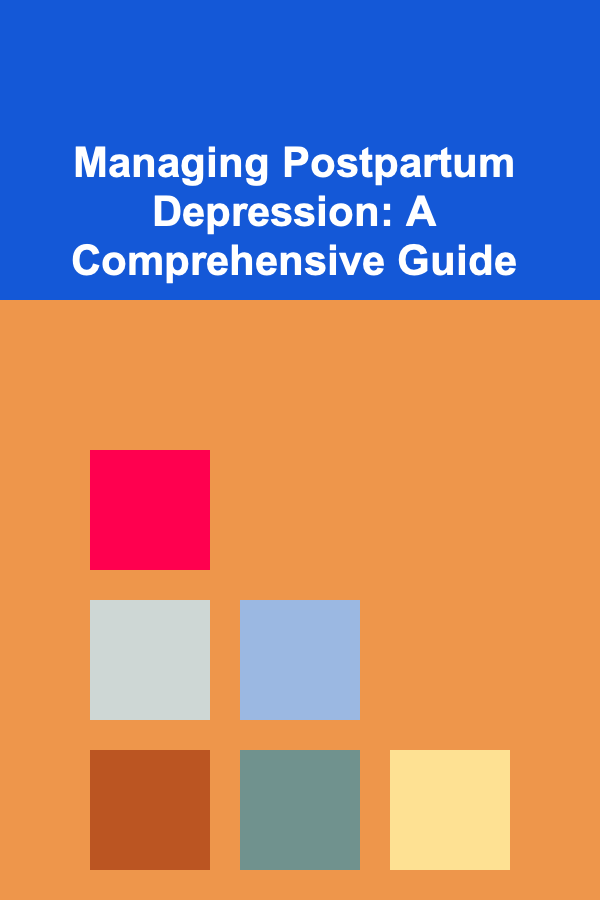
How To Improve Your Decision-Making Under Pressure
ebook include PDF & Audio bundle (Micro Guide)
$12.99$11.99
Limited Time Offer! Order within the next:

Decision-making under pressure is a critical skill in both personal and professional environments. Whether you're a leader in a high-stakes business meeting, an athlete in the final moments of a game, or simply facing a personal dilemma, the ability to make sound decisions when time is short or the stakes are high can define outcomes.
In this article, we'll explore various techniques and strategies to improve your decision-making under pressure. From understanding the psychology behind decision-making to implementing practical tools, this guide will equip you with the knowledge and skills to perform effectively in challenging situations.
The Psychology of Decision-Making Under Pressure
The Role of Stress and Anxiety
Stress and pressure often accompany high-stakes decision-making. The physiological and psychological responses to pressure, such as increased heart rate and heightened anxiety, can cloud judgment and hinder effective decision-making. When under pressure, the brain is more likely to rely on shortcuts, such as heuristics or past experiences, which can lead to biased decisions.
One key challenge is that stress increases cognitive load, meaning that the brain has to manage more information at once, reducing its capacity to process complex decisions. This is often why people under pressure tend to make snap judgments or fall back on default responses, which may not always be the best choice.
The Impact of Time Constraints
Time constraints exacerbate the effects of pressure. Decision-making often requires careful deliberation, weighing the pros and cons, and predicting outcomes. However, when under time constraints, the ability to thoroughly analyze options diminishes. This is where quick thinking, intuition, and judgment come into play. It's critical, therefore, to have strategies in place that allow you to make better decisions in short time frames.
Decision Fatigue
When faced with repeated decisions, especially under pressure, decision fatigue can set in. Decision fatigue occurs when the quality of decisions begins to decline after making too many decisions in a short period. Under pressure, people may opt for the easiest or most familiar option, bypassing critical analysis and leading to suboptimal outcomes.
Strategies to Improve Decision-Making Under Pressure
1. Practice Mindfulness
Mindfulness is the practice of staying present and fully engaged in the moment. By reducing the influence of stress and anxiety, mindfulness can help you stay calm and focused during high-pressure situations. The more mindful you are, the more likely you are to make clear-headed, rational decisions.
Practicing mindfulness regularly---whether through meditation, breathing exercises, or simply being aware of your thoughts and feelings---can help you manage stress when it arises. In high-pressure situations, mindfulness allows you to:
- Stay calm: By observing your emotions without judgment, you reduce their impact on decision-making.
- Increase focus: Mindfulness sharpens your attention, making it easier to concentrate on relevant information.
- Enhance clarity: By pausing to reflect, you gain a better understanding of the situation before making a decision.
2. Develop a Decision-Making Framework
Having a structured approach to decision-making can improve consistency and reduce the emotional impact of pressure. When under stress, following a decision-making framework can give you a clear, step-by-step guide to making better choices.
Some common decision-making frameworks include:
- The OODA Loop (Observe, Orient, Decide, Act): Developed by military strategist John Boyd, this framework helps individuals quickly assess a situation and make decisions in dynamic environments.
- The Eisenhower Matrix: This framework helps prioritize tasks based on urgency and importance, helping you focus on high-priority decisions under pressure.
- Cost-Benefit Analysis: Weighing the potential costs and benefits of each option before making a decision can help you make more rational choices.
By developing a personalized framework and practicing it, you can improve your ability to make effective decisions, even under pressure.
3. Cultivate Emotional Intelligence
Emotional intelligence (EQ) plays a significant role in decision-making, especially in high-pressure situations. People with high EQ are better at recognizing their own emotions and the emotions of others, which can enhance their decision-making abilities.
Emotional intelligence involves several components:
- Self-awareness: Recognizing your own emotional states and how they affect your thoughts and actions.
- Self-regulation: The ability to manage your emotions and remain calm under pressure.
- Empathy: Understanding and considering the emotions of others, which is essential for collaborative decision-making.
- Social skills: Managing relationships effectively, especially in high-stakes situations.
By enhancing your emotional intelligence, you can better manage your reactions to stress, avoid impulsive decisions, and consider the perspectives of others in your decision-making process.
4. Practice Stress Management Techniques
Managing stress is essential for making good decisions under pressure. The more you practice techniques to reduce stress, the better equipped you'll be when facing high-pressure situations.
Effective stress management techniques include:
- Breathing exercises: Simple deep-breathing techniques can reduce heart rate and induce a sense of calm.
- Visualization: Visualizing a positive outcome or imagining yourself making a confident decision can enhance your focus and reduce anxiety.
- Physical exercise: Regular physical activity can help reduce overall stress levels, improve cognitive function, and boost mood, all of which contribute to better decision-making under pressure.
Incorporating stress management into your routine will increase your ability to remain calm and make decisions with a clear mind.
5. Use Intuition as a Tool
While it's important to be analytical, intuition can also play a significant role in decision-making under pressure. Intuition is often the result of accumulated experience and knowledge that allows individuals to make fast, accurate decisions without needing to consciously deliberate on each option.
However, intuition can be unreliable when not properly developed. To use intuition effectively, it's important to:
- Gain experience: The more you expose yourself to situations where quick decisions are needed, the better your intuition becomes.
- Develop expertise: Intuition is built on knowledge. As you become more knowledgeable in your field, your intuitive decisions will improve.
- Trust your gut: Once you've built experience and expertise, trust your instincts, especially when time is limited.
6. Limit the Number of Options
Decision overload can occur when there are too many options to choose from, especially under pressure. When faced with multiple options, it becomes harder to process all the available information, increasing the chances of making a poor decision.
To counteract this:
- Simplify choices: Limit your options to a manageable number. Narrowing down the choices reduces cognitive load and makes decision-making more efficient.
- Eliminate irrelevant options: Focus on the options that matter most, eliminating those that don't meet your criteria.
- Set boundaries: Define what's acceptable in advance so you can quickly eliminate choices that don't align with your goals or values.
By limiting your options, you can make more decisive and effective decisions under pressure.
7. Take Quick Action, but Evaluate Risks
While speed is often necessary under pressure, it's still important to consider the risks of acting too quickly. Taking action too hastily without evaluating potential consequences can lead to mistakes or missed opportunities.
To balance speed with risk assessment:
- Use a "quick check" process: Before acting, briefly evaluate the key risks and rewards of your options.
- Avoid perfectionism: Understand that not every decision needs to be perfect. Focus on making a good decision in the available time rather than overthinking every detail.
- Learn from past mistakes: Reflect on previous decisions to identify patterns, so you can improve your ability to make quick, but calculated decisions.
Taking action quickly is important, but doing so with a brief evaluation of the risks can significantly improve the outcomes of your decisions.
8. Seek Input When Necessary
When facing a high-pressure decision, it can be tempting to go it alone. However, seeking input from others can provide valuable perspectives and improve the quality of your decision.
To effectively gather input:
- Consult experts: If time allows, reach out to those who have expertise or experience in the area of decision-making.
- Collaborate with trusted peers: Leverage the collective knowledge of your team or peers to gain a wider range of insights.
- Keep feedback brief: In high-pressure situations, time is limited, so ask for concise advice or opinions to avoid overloading yourself with information.
Seeking input doesn't necessarily mean you should defer the decision to others, but it can help you avoid overlooking key factors.
Conclusion
Improving decision-making under pressure is a skill that can be developed with time, practice, and the right techniques. By cultivating mindfulness, using structured decision-making frameworks, developing emotional intelligence, managing stress, and trusting your intuition, you can enhance your ability to make sound decisions even when the stakes are high.
Remember that decision-making is not always about making the perfect choice; it's about making the best choice with the information and resources available in a given moment. By honing these skills, you'll be better prepared to navigate the complexities and challenges that come with decision-making under pressure.
Reading More From Our Other Websites
- [Small Business 101] Best Affiliate Marketing Programs for Small Niche Websites
- [Home Budget Decorating 101] How to Decorate with Minimalist Style on a Budget: Clean and Simple Ideas
- [Organization Tip 101] How to Use a Calendar App for Family Organization
- [Digital Decluttering Tip 101] Proven Strategies to Keep Your Digital Photo Library Tidy
- [Home Maintenance 101] How to Protect Your Home from Pests with Routine Maintenance
- [Trail Running Tip 101] How to Prepare for Unexpected Weather on the Trail
- [Personal Financial Planning 101] How to Save for a Downpayment on a Home: A Foolproof Plan
- [Tie-Dyeing Tip 101] DIY Natural Dye Recipes: Creating Vibrant Tie-Dye Prints Without Synthetic Chemicals
- [Home Budget Decorating 101] How to Mix and Match Budget Decor with High-End Pieces
- [Stamp Making Tip 101] Inspiring DIY Projects: Using Linocut Stamps for Cardmaking, Gift Wrapping, and More

How to Leverage Your Certifications on Your Resume
Read More
How to Take Care of Your Home's Lawn and Landscaping
Read More
How to Understand Baking Temperatures and Times
Read More
How to Use VR for Vocational Training
Read More
Managing Postpartum Depression: A Comprehensive Guide
Read More
Booking Agent Contracts: How to Protect Yourself and Your Clients
Read MoreOther Products

How to Leverage Your Certifications on Your Resume
Read More
How to Take Care of Your Home's Lawn and Landscaping
Read More
How to Understand Baking Temperatures and Times
Read More
How to Use VR for Vocational Training
Read More
Managing Postpartum Depression: A Comprehensive Guide
Read More